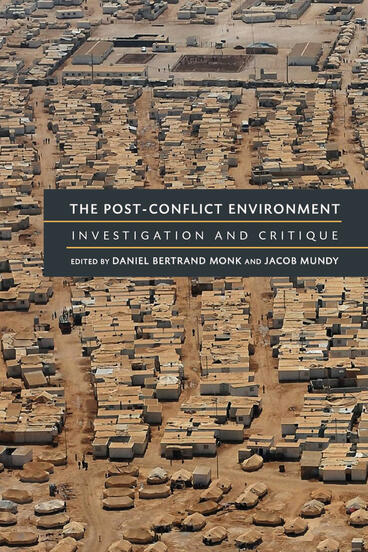The Post-Conflict Environment
Investigation and Critique
A critique of the technocratic neoliberal paradigm of peacebuilding
Description
In case studies focusing on contemporary crises spanning Africa, the Middle East, and Eastern Europe, the scholars in this volume examine the dominant prescriptive practices of late neoliberal post-conflict interventions—such as statebuilding, peacebuilding, transitional justice, refugee management, reconstruction, and redevelopment—and contend that the post-conflict environment is in fact created and sustained by this international technocratic paradigm of peacebuilding. Key international stakeholders—from activists to politicians, humanitarian agencies to financial institutions—characterize disparate sites as “weak,” “fragile,” or “failed” states and, as a result, prescribe peacebuilding techniques that paradoxically disable effective management of post-conflict spaces while perpetuating neoliberal political and economic conditions. Treating all efforts to represent post-conflict environments as problematic, the goal becomes understanding the underlying connection between post-conflict conditions and the actions and interventions of peacebuilding technocracies.
Daniel Bertrand Monk is George R. and Myra T. Cooley Professor of Peace and Conflict Studies and Professor of Geography and Middle East Studies at Colgate University.
Jacob Mundy is Assistant Professor of Peace and Conflict Studies at Colgate University, where he also serves on the faculty of the Middle East and Islamic Studies program.

